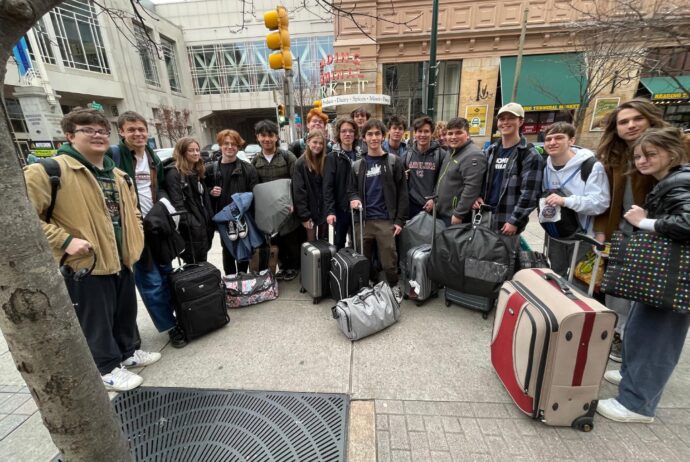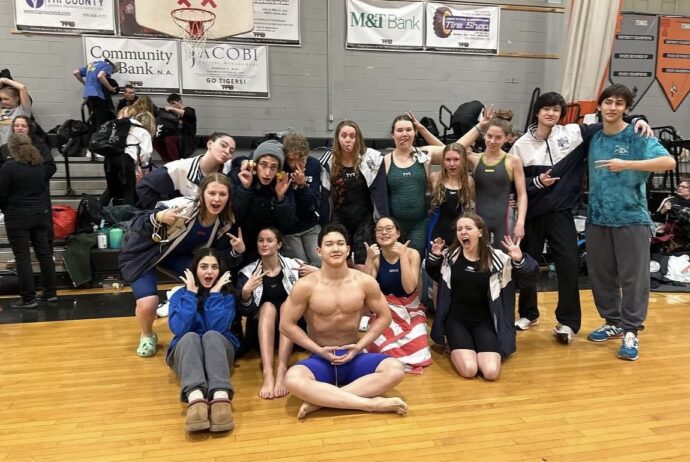by Cate Griffin ’23
From January 26th-29th, 18 members of Sem’s Model UN team traveled between two school vans to the University of Pennsylvania (actually, the Marriott Philadelphia Downtown Hotel) to participate in the Ivy League Model United Nations Conference, or ILMUNC. Over the course of four days, the students attending the conference not only engaged in debate with students from all over the country and even the world, but learned how to build Croatian-style stone walls by hand and the history of these aforementioned stone walls, alternative methods to heating up pizza (such as with a hotel room iron), and that the fastest way to make enemies in Philly is to express any form of dislike towards the Eagles.
Overall, the club had an enjoyable and educational weekend in Philadelphia. Although the only award received was Outstanding Delegate, awarded to Robert Beletsky ’23 for his performance in the Jurassic Park crisis committee, the general consensus was that Sem’s chances at award-winning may have been increased had they not been assigned at least 13 roles acting as the country of Zimbabwe. Despite the modest success award-wise, Sem delegates gained invaluable experiences at ILMUNC, both in committee sessions and out exploring Philadelphia or going to conference events. Through competing with over 1,500 other delegates from Pennsylvania to Mexico and by creating stronger bonds with fellow Sem students, Model UN had an unforgettable experience at ILMUNC.


